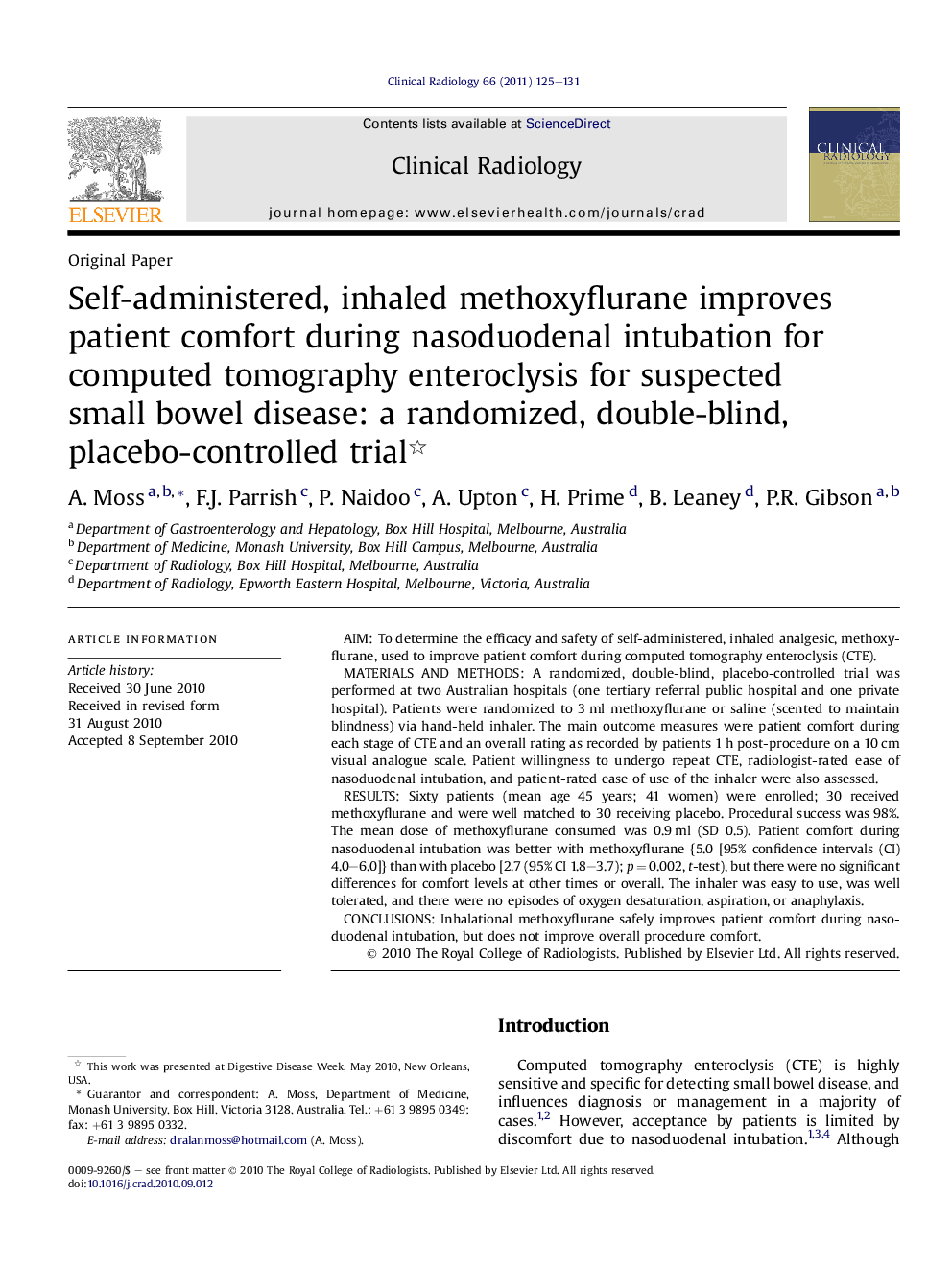| Article ID | Journal | Published Year | Pages | File Type |
|---|---|---|---|---|
| 3983164 | Clinical Radiology | 2011 | 7 Pages |
AimTo determine the efficacy and safety of self-administered, inhaled analgesic, methoxyflurane, used to improve patient comfort during computed tomography enteroclysis (CTE).Materials and methodsA randomized, double-blind, placebo-controlled trial was performed at two Australian hospitals (one tertiary referral public hospital and one private hospital). Patients were randomized to 3 ml methoxyflurane or saline (scented to maintain blindness) via hand-held inhaler. The main outcome measures were patient comfort during each stage of CTE and an overall rating as recorded by patients 1 h post-procedure on a 10 cm visual analogue scale. Patient willingness to undergo repeat CTE, radiologist-rated ease of nasoduodenal intubation, and patient-rated ease of use of the inhaler were also assessed.ResultsSixty patients (mean age 45 years; 41 women) were enrolled; 30 received methoxyflurane and were well matched to 30 receiving placebo. Procedural success was 98%. The mean dose of methoxyflurane consumed was 0.9 ml (SD 0.5). Patient comfort during nasoduodenal intubation was better with methoxyflurane {5.0 [95% confidence intervals (CI) 4.0–6.0]} than with placebo [2.7 (95% CI 1.8–3.7); p = 0.002, t-test), but there were no significant differences for comfort levels at other times or overall. The inhaler was easy to use, was well tolerated, and there were no episodes of oxygen desaturation, aspiration, or anaphylaxis.ConclusionsInhalational methoxyflurane safely improves patient comfort during nasoduodenal intubation, but does not improve overall procedure comfort.
